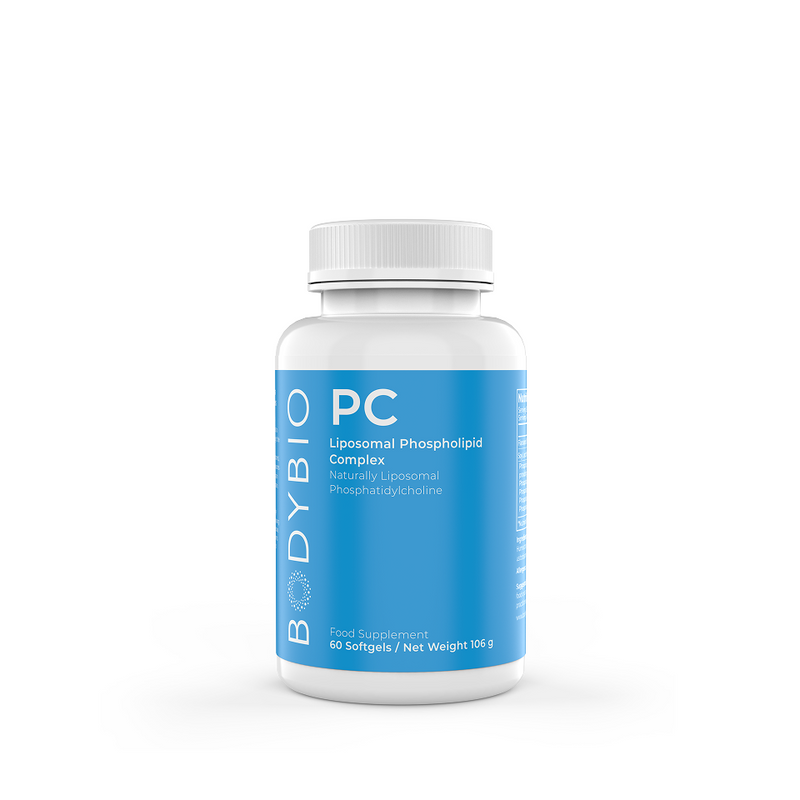Best Foods for Brain Health: Support Memory, Concentration, & Anti-Aging
Key Takeaways:
Key Points:
- A balanced diet supports cognitive function and can help protect the brain from damage, promoting memory retention and reducing the risk of cognitive decline.
- Certain foods can boost memory, while others impair memory and contribute to cognitive decline.
- Certain foods can aid in brain recovery by reducing inflammation, supporting brain cell repair, and improving overall cognitive health.
Your brain is the control center of your body. It influences everything — from how you think and feel to how you move and function. Keeping your brain in the best shape possible is vital for overall well-being, especially as we age. The foods we eat significantly affect brain health, impacting cognitive function, memory, and how quickly our brains age. Just as certain foods fuel your body, the right nutrients can fuel your brain, enhance memory, improve focus, and slow the effects of cognitive decline. By making smart dietary choices, you can keep your mind sharp, focused, and resilient for years to come.
Table of Contents:
- Connection Between Food and Brain Health
- Best Foods for Boosting Memory
- Worst Foods for Memory
- Foods for Better Concentration
- Foods for Brain Recovery
- Bonus Tips for Brain Health
The Connection Between Food & Brain Health
Our brains require a key mix of nutrients to function at their best. A balanced diet filled with antioxidants and healthy fats supplies the brain with the necessary building blocks to operate efficiently. By implementing the right nutrients into your diet, you can enhance brain health, cognitive function, and memory retention while warding off cognitive decline before it even begins — and simultaneously help yourself live a longer, healthier life.
Best Foods for Boosting Memory
Having a sharp, strong memory is something we all value — an ability we aim to preserve for as long as we can — especially as we get older and life is still busy and hectic, and the to-do list never ends. Fortunately, certain foods support and improve memory functions by enhancing communication and interaction between brain cells and reducing inflammation.
Some specific foods that can help improve and support memory are:
- Fatty Fish: Salmon, trout, and sardines are packed with omega-3 fatty acids, which are essential for brain function. Omega-3s help build brain cells and improve learning and memory. If you don’t like eating fish, try supplementing your diet with fish oil.
- Berries: Blueberries, strawberries, and other berries are loaded with antioxidants that promote better communication between brain cells and reduce oxidative stress, which can lead to memory decline.
- Nuts and Seeds: Vitamin E, which is abundant in nuts and seeds like almonds, walnuts, and flaxseeds, has been linked to improved memory. Studies suggest that vitamin E can help protect against cognitive decline as we age.
- Dark Chocolate: Here’s some good news for chocolate lovers! Dark chocolate contains flavonoids, caffeine, and antioxidants that improve brain plasticity, which can enhance memory and slow down cognitive aging. Good quality coffee provides similar benefits.
- Mushrooms: Varieties like lion's mane, reishi, chaga, and cordyceps are known for their abilities to boost nerve cell growth, maintain healthy nerve cells, develop new neurons in the brain, decrease oxidative stress, boost serotonin, reduce inflammation, and increase your attention span. Nootropics, like lion’s mane, may also improve symptoms of Alzheimer's, Dementia, and Parkinson’s.
What Are the 5 Worst Foods for Memory?
Just like some foods support memory, some foods can also harm it. These memory-sabotaging foods can contribute to inflammation, disrupt brain function, and increase the risk of cognitive decline. Here are the five worst foods for memory:
- Sugary Drinks: Beverages high in sugar, such as sodas and energy drinks, can increase blood sugar levels and cause brain fog, impairing memory and focus.
- Refined Carbs: White bread, pastries, and other refined carbs spike blood sugar levels, leading to inflammation and negatively impacting the brain over time.
- Trans Fats: Found in processed and fried foods, trans fats can damage brain cells and increase the risk of memory decline and cognitive impairment.
- Highly Processed Foods: Chips, instant noodles, and fast food are loaded with preservatives, unhealthy fats, and sugars that contribute to inflammation and hinder brain function — making them a major enemy of memory.
- Aspartame: This artificial sweetener, commonly found in diet sodas and sugar-free snacks, has been linked to memory loss and cognitive decline due to its negative effects on neurotransmitter function.
Brain Foods for Better Concentration
Brain fog is a type of neurocognitive impairment that reduces mental clarity and makes it difficult to concentrate and problem-solve. Being chronically online, something that’s become almost second nature to us, can lead to popcorn brain. What do popcorn brain and brain fog have in common? Both affect our attention spans and ability to concentrate.
The right nutrients can counteract brain fog and popcorn brain, improve brain function, and prevent distractions.
- Leafy Greens: Spinach, kale, and other leafy greens are rich in nutrients like vitamin K, lutein, folate, and beta-carotene — all of which support brain health, improve focus and help protect the brain from cognitive decline.
- Eggs: Eggs are an excellent source of omega-3 fatty acids, B vitamins, antioxidants, minerals, and phosphatidylcholine, a nutrient vital for brain development and acetylcholine (a key neurotransmitter) production. Phosphatidylcholine helps regulate memory and mood, making eggs a great option for staying focused throughout the day.
- Green Tea: Known for its combination of caffeine and L-theanine, green tea provides a smooth boost of energy without the jittery effects of coffee. L-theanine promotes relaxation and improves focus and attention, making it the perfect drink to sip on when you need mental clarity.
- Oranges and Other Citrus Fruits: Packed with vitamin C, oranges protect the brain from oxidative stress and improve attention and mental clarity. Plus, you get an added immune boost. Go for the whole fruit rather than sugary orange juice.
Foods to Support Brain Healing & Recovery
Accidents happen, sometimes resulting in brain injuries. Brain injuries occur when the brain experiences damage due to physical trauma, illness, or even emotional trauma. These injuries can range from mild to severe and can affect various parts of the brain, leading to different symptoms depending on the area impacted. Brain injuries are categorized into two main types: traumatic and non-traumatic.
Traumatic brain injuries, or TBIs, result from an external force, such as a blow or sudden jolt to the head. They’re common in some accidents, sports injuries, and falls. Some examples of TBIs include concussions, skull fractures, and axonal injuries. There are also non-traumatic brain injuries like infections, strokes, tumors, toxic exposures, and hypoxic or anoxic brain injuries (caused by a lack of oxygen to the brain).
While nutrition can’t entirely heal brain injuries on its own, some foods can help you throughout the recovery process. Certain foods can promote recovery and improve brain plasticity.
- Blueberries: Rich in antioxidants, blueberries help repair damage caused by oxidative stress, which can occur during periods of intense mental strain. They also support the production of new brain cells, making them an excellent choice for recovery.
- Walnuts: Walnuts are high in ALA, a type of omega-3 fatty acid known for supporting brain health and recovery. They help reduce inflammation, repair brain tissue, and improve cognitive function after injury or mental exhaustion.
- Turmeric: Curcumin, the active compound in turmeric, has potent anti-inflammatory and antioxidant effects. It can cross the blood-brain barrier and stimulate brain cell repair, making it a powerful tool for recovery and brain health.
- Dark Leafy Greens: Vegetables like spinach, kale, and Swiss chard are packed with antioxidants, vitamins, and minerals that help protect brain cells and support healing after injury or prolonged stress.
- Fatty Fish: Salmon, mackerel, and sardines contain high levels of omega-3s, which support faster recovery and help restore cognitive function.
- Pumpkin Seeds: Rich in magnesium, iron, zinc, and copper, pumpkin seeds help maintain optimal brain function during recovery. Magnesium, in particular, supports relaxation and helps reduce mental fatigue.
Incorporating these foods into your diet can aid in your recovery process, allowing you to bounce back from mental fatigue or brain injuries while promoting long-term cognitive health.
If you’re experiencing a TBI or other brain injury, please consult your healthcare provider about foods you should incorporate throughout your recovery process.
Healthy Fats for Brain Health
Our brains are made up of nearly 60% fat and rely on a steady supply of both saturated fats and essential fatty acids to function properly.
- Saturated Fat: Saturated fat helps form the myelin sheath, a protective layer that surrounds nerve cells, allowing them to communicate more effectively. Without an adequate amount of saturated fats, brain cell communication can slow down, potentially impacting cognitive function.
- Monounsaturated Fats: Monounsaturated fats, in particular oleic acid, are beneficial for brain health, supporting the structure and function of brain cells, improving cognitive performance, and reducing inflammation. They also contribute to better blood flow to the brain and may improve mood and mental well-being. The best sources of monounsaturated fats include olive oil, avocados, nuts, and seeds.
- Polyunsaturated Fats: These fats are crucial for brain structure, nerves, and cellular function. Polyunsaturated fatty acids (like omega-3 and 6 fatty acids) are known to boost cognitive function and reduce inflammation in the brain. They support the development and repair of brain cells, and they’re beneficial in mitigating age-related cognitive decline.
Balancing both saturated fats and unsaturated fatty acids in your diet helps protect your brain from age-related decline, helps promote long-term mental clarity, and helps us slow down the process of aging.
Anti-Aging Foods for Cognitive Health
By incorporating the right nutrients into your diet, you can reduce the risk of age-related diseases like Alzheimer’s and dementia. You can also promote long-term brain health and improve mental agility as you age. These foods not only help preserve memory and cognitive function — they also work to protect brain cells from damage caused by inflammation and oxidative stress.
- Berries: Berries, especially blueberries, have a protective effect on the brain. Studies suggest that they can help improve cognitive function and delay the onset of age-related cognitive decline. The anthocyanins in berries, which give them their vibrant color, are linked to improved memory, learning, and neuroplasticity (the brain's ability to form new connections and adapt to changes).
- Broccoli: Broccoli is a nutritional powerhouse when it comes to brain health. It’s rich in antioxidants and vitamin K, which support cognitive function and protect the brain from oxidative stress.
- Pumpkin Seeds: These tiny seeds pack a punch of essential nutrients like magnesium, iron, zinc, and copper, all of which play a vital role in maintaining cognitive function. Zinc, in particular, is essential for nerve signaling, while magnesium helps support learning and memory.
Bonus Tips for Brain Health
When it comes to brain health, it's important to remember that diet is just one piece of the puzzle. Staying hydrated is also a top contender for maintaining mental clarity — even mild dehydration can impair focus and memory. In addition to hydration, balanced, nutrient-dense meals can prevent energy crashes that can lead to brain fog.
Beyond diet, lifestyle choices like regular exercise, getting enough sleep, and managing stress levels all contribute to better brain function. A holistic approach that combines healthy eating with an active, balanced lifestyle will give your brain the best chance to thrive.
The Path to a Sharper, Healthier Brain
Your brain is the command center of your body — it’s the most powerful tool in our physiological arsenal. And it deserves the right fuel to perform at its best. By incorporating the best foods for brain health into your daily diet, you’re not only safeguarding your memory and concentration today — you’re also taking steps to protect your cognitive health for your future.
Next time you’re planning a meal or a snack, remember that your brain is hungry too, and feeding your brain with the right foods can lead to a healthier, happier life. So go ahead and make some good choices today that support your brain health for tomorrow.
One of the supplements we’ve seen the most success with is phosphatidylcholine, found in BodyBio PC. Phosphatidylcholine has shown impressive results in supporting brain health by enhancing acetylcholine production and strengthening cell membranes. It’s especially beneficial for both aging adults and those managing chronic conditions, helping many people regain mental clarity and focus.
Fadó, R., Molins, A., Rojas, R., & Casals, N. (2022). Feeding the Brain: Effect of Nutrients on Cognition, Synaptic Function, and AMPA Receptors. Nutrients, 14(19), 4137. https://doi.org/10.3390/nu14194137
Foods linked to better brainpower. Harvard Health. (2024, April 3). https://www.health.harvard.edu/healthbeat/foods-linked-to-better-brainpower
Gómez-Pinilla F. (2008). Brain foods: the effects of nutrients on brain function. Nature reviews. Neuroscience, 9(7), 568–578. https://doi.org/10.1038/nrn2421
Kurtz, P., & Rocha, E. E. M. (2020). Nutrition Therapy, Glucose Control, and Brain Metabolism in Traumatic Brain Injury: A Multimodal Monitoring Approach. Frontiers in neuroscience, 14, 190. https://doi.org/10.3389/fnins.2020.00190
Lachance, L., & Ramsey, D. (2015). Food, Mood, and Brain Health: Implications for the Modern Clinician. Missouri Medicine The Journal of The Missouri State Medical Association - Since 1904, 112(2), 111–115. https://pmc.ncbi.nlm.nih.gov/articles/PMC6170050/
Poblete, R. A., Yaceczko, S., Aliakbar, R., Saini, P., Hazany, S., Breit, H., Louie, S. G., Lyden, P. D., & Partikian, A. (2023). Optimization of Nutrition after Brain Injury: Mechanistic and Therapeutic Considerations. Biomedicines, 11(9), 2551. https://doi.org/10.3390/biomedicines11092551
Puri, S., Shaheen, M., & Grover, B. (2023). Nutrition and cognitive health: A life course approach. Frontiers in public health, 11, 1023907. https://doi.org/10.3389/fpubh.2023.1023907
Solan, M. (2024, August 1). A balanced approach to eating may be best for Brain Health. Harvard Health. https://www.health.harvard.edu/mind-and-mood/a-balanced-approach-to-eating-may-be-best-for-brain-health
Turnagöl, H. H., Koşar, Ş. N., Güzel, Y., Aktitiz, S., & Atakan, M. M. (2021). Nutritional Considerations for Injury Prevention and Recovery in Combat Sports. Nutrients, 14(1), 53. https://doi.org/10.3390/nu14010053
Zamroziewicz, M. K., & Barbey, A. K. (2016). Nutritional Cognitive Neuroscience: Innovations for Healthy Brain Aging. Frontiers in neuroscience, 10, 240. https://doi.org/10.3389/fnins.2016.00240







